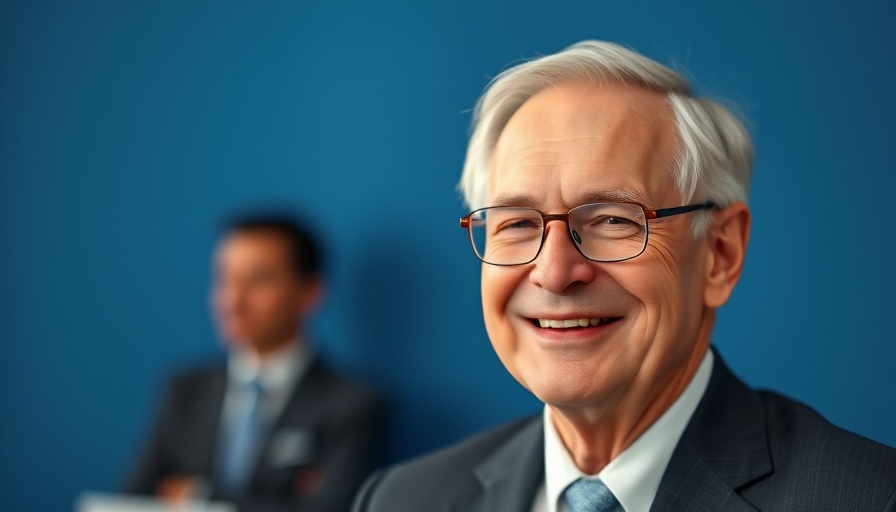
The Generosity of Warren Buffett: A Lesson in Legacy
Warren Buffett, the 93-year-old CEO of Berkshire Hathaway and one of the world's wealthiest individuals, recently made headlines for executing his largest annual donation ever, distributing a staggering 13.7 million Class B shares of his company's stock. This act, valued at approximately $6 billion, marks a significant milestone in Buffett's long-term commitment to philanthropy. However, the essence of this act transcends mere financial contributions; it offers profound lessons in leadership and legacy for us all.
Understanding the Magnitude: More Than Just Numbers
While the numbers surrounding Buffett’s philanthropic efforts are indeed impressive, it is vital to recognize that the real story lies not in the wealth itself but in how Buffett intends to shape his legacy through generosity. With total giving now surpassing $60 billion, many may marvel at his wealth, but it is Bufffett's method of distribution that invites reflection. Unlike many high-profile philanthropic ventures, Buffett’s approach is both personal and structured. He orchestrates his donations annually while ensuring that those who will eventually manage his remaining resources, including his children, are entrusted with decision-making power rather than mere financial windfalls.
Buffett’s Legacy: More Than a Checkout Process
This philanthropic philosophy stems from Buffett's belief that wealth should empower others rather than inhibit their potential. Reflecting on his strategy, Buffett stated, “I want to give my kids enough so that they can do anything, but not so much that they can do nothing.” In an age where personal brands often overshadow genuine contributions, Buffett’s humility stands out. He refrains from positioning himself as a cultural icon, allowing his actions to speak for themselves and demonstrating a rare authenticity in a world full of self-promotion.
Wide-Reaching Effects: Charitable Influence and Social Change
The Bill & Melinda Gates Foundation, which received $4.6 billion this year alone, exemplifies the impact of Buffett's giving. By choosing to invest substantially in organizations dedicated to global issues, Buffett not only elevates their work but inspires others in wealthier echelons to follow suit. Social connection lies at the heart of effective philanthropy; through his contributions, Buffett emphasizes the importance of trust and communal responsibility, reinforcing the social fabric that binds both wealthy benefactors and those in need.
Future Predictions: Changing the Narrative of Wealth in Philanthropy
Buffett's ongoing campaign to redistribute wealth challenges the traditional narrative surrounding billionaires and their responsibilities to society. As the landscape of wealth shifts, future leaders may increasingly recognize the value of strategic philanthropy as a pivotal part of their legacy. Individuals like Buffett are transforming how generations think about wealth distribution, shifting the paradigm from hoarding to sharing.
A Scalable Model: Emulating Buffett's Approach in Corporate Culture
Incorporating Buffett's strategies can greatly enhance corporate social responsibility. By prioritizing purposes and extending influence for the greater good, other leaders can cultivate transformative practices rooted not just in financial success, but also in social well-being. Organizing annual contributions, leveraging charitable work to bolster communities, and empowering future generations through adequate resources—these are tenets that, when embraced, can fundamentally alter corporate culture.
Conclusion: Why Future Leaders Should Embrace This Lesson
Warren Buffett’s recent $6 billion donation is not merely a tribute to his wealth; it reflects a well-thought-out strategy of impact and legacy-building. Future leaders can extract valuable insights from his approach—focusing on the importance of thoughtful legacy over mere accumulation of wealth. The principles Buffett exemplifies should inspire us all to think beyond our personal gain and to consider the broader implications of our decisions, reaffirming that true leadership transcends the boardroom and ensures benefit to society at large.
 Add Row
Add Row 
 Add
Add 


Write A Comment